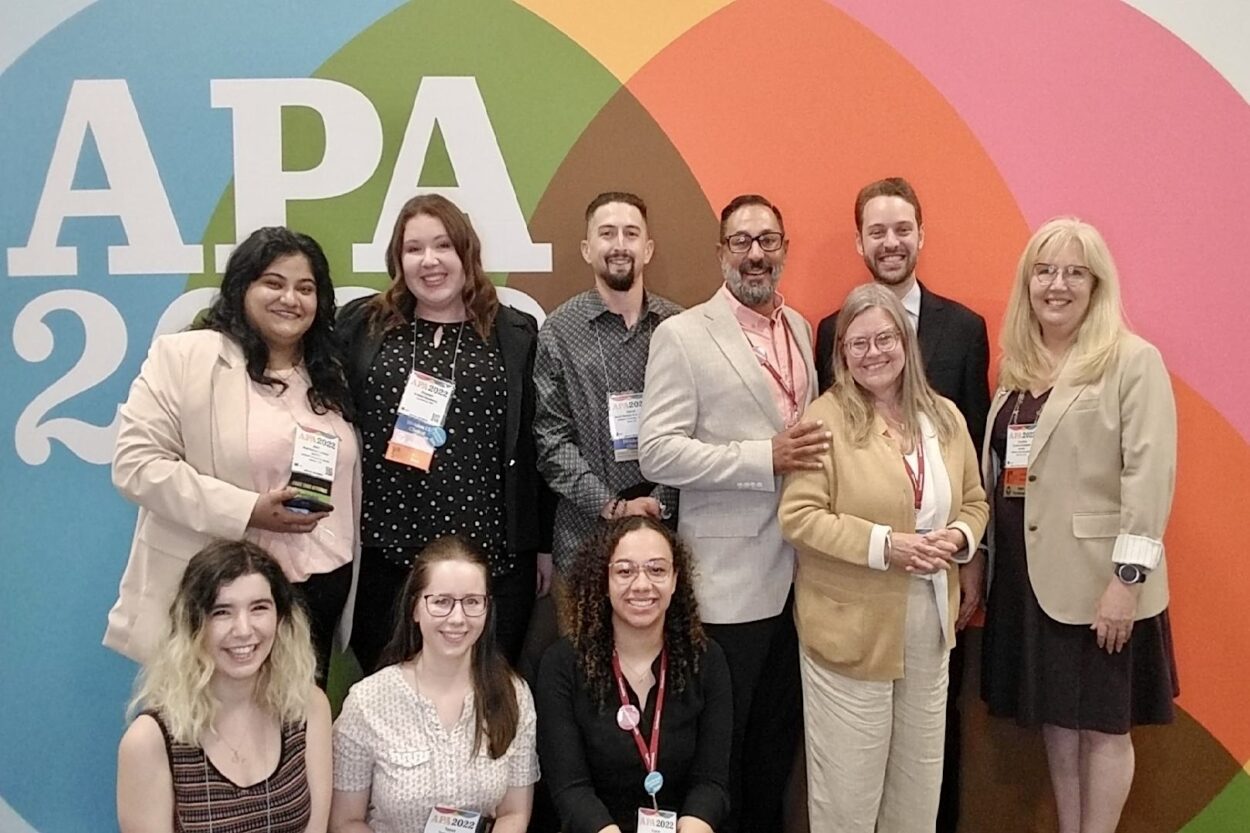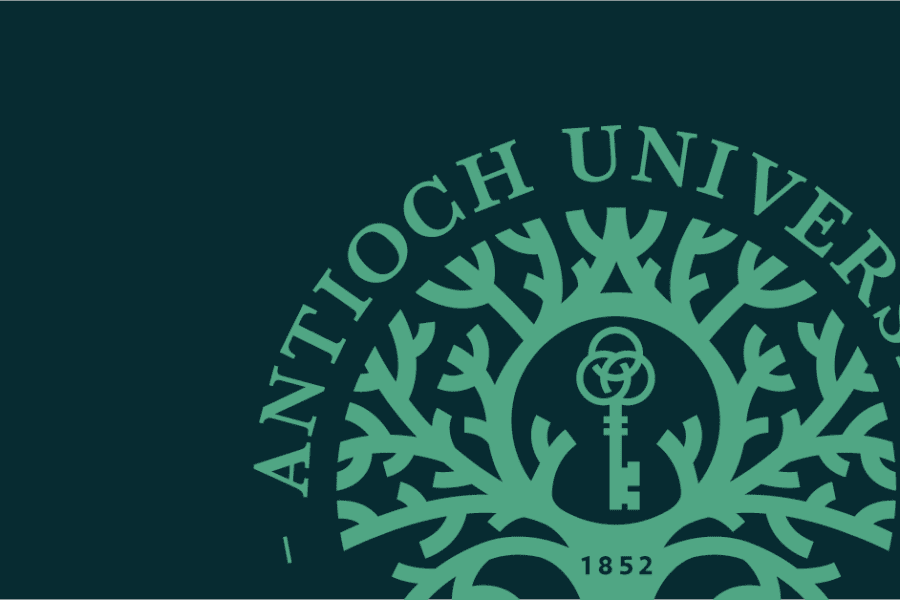“Psychology is everywhere.” was the noted slogan of the 2022 American Psychological Association’s Convention website, and in August of this year, an assorted selection of offerings by the APA were brought to Minneapolis, Minnesota, and live-streamed via two simultaneous channels. In describing this year’s convention, APA President Frank C. Worrell, PhD, wrote, “There are times when the world needs soldiers and diplomats. Today, the world needs psychologists. Let us all answer the call.” Keynote speakers from across the discipline were present at the convention, along with preeminent thought leaders, researchers, and experts. Among these were Antioch’s own Dr. Jude Bergkamp, core faculty and chair of the Seattle PsyD program in Clinical Psychology, and a nominated and elected member of the APA doctoral-level competency task force.

In his role on the APA competency task force, which convenes once every ten to fifteen years, Bergkamp had the distinct duty of revisioning the field of clinical psychology and what it might look like over the next decade. Goals for the task force included revamping educational and professional components of the field, and considering how psychologists can be trained and evaluated in order to meet anticipated needs. The Seattle PsyD program was well represented at the convention by students, faculty, and their research. Ten presentations at the 2022 APA convention were from Antiochians.
An Overarching Responsibility
Bergkamp’s professional background and continuous work in the field of clinical psychology emphasizes curriculum integration with social justice and the inclusion of decolonial and multicultural perspectives; what he feels is a social responsibility for psychology.
Antioch had a larger turnout of faculty and students at the APA convention this year than in the past. Part of the reason for that was Antioch Seattle’s Clinical Psychology program developing a number of Interest Research Groups. “Almost all of this year’s sessions came from our Interest Research Groups, in which prior, APA hardly had any presentations,” he said. Each of these nine groups has a very specific field of study they are working in and advocating for. The AWAKE Project (The Autistic Women’s Advocacy, Knowledge, and Empowerment Project) is an online social justice, advocacy, and psychoeducational program for autistic people. Other groups include the Relational Treatment of Clinical Complexity, Trauma Interest Group; Anger, Aggression, and Irritability Research Group, Positive Psychology Lab, The Institute of War Stress Injuries, Recovery, and Social Justice; Decoloniality and Social Justice Privilege Awareness Institute (DSPI), Forensic Psychology Research Lab, and the Pre and Perinatal Psychology Interest Group.
Diversity in Presentations
The ten sessions presented at APA could inspire a new trajectory in the field of psychology. The presentations created in the Interest Research Groups not only allowed for important subject matter to be explored and presented, but also created spaces for mentorship, support, and feedback for doctoral students of color from across the country. Over the course of an estimated year and a half, over 100 students have participated in the research groups. In one particularly successful session, “doctoral students were asked to compile a set of feedback for how faculty, administration, and programs can improve services and approach in an anti-racism manner,” says Bergkamp. The presentation was well received, with provosts, chairs, and directors of clinical training in attendance.
From the Society for the Psychological Study of Culture, Ethnicity, and Race, presentations were given on such topics as “From the Bottom Up BIPOC Doctoral Students Feedback to Program Faculty and Administration” and “The Aggregate Model: Conceptualizing Social Privilege and Power in the Therapeutic Relationship.” These seminars focused on subject matter that challenged foundational power structures in the mental health field. From the Society of Clinical Psychology, “The Therapist Paragon: Pathways and Mechanisms of Privilege in Psychotherapy,” was offered. A critical conversation on “21st Century Psychology: Is Decoloniality Possible?” was provided, along with sessions on child, adolescent, and couple and family therapy including, “How much do I Hate You? A Critical Analysis of Current Definitions and Measures of Resentment,” along with many others.
The PsyD in Clinical Psychology program in New England also had a student and faculty member present together. Shannon McIntyre, PhD core faculty and Katarina Stephenson analyzed thirteen studies related to therapist disengagement and patient personality pathology. It was titled “What Therapist Disengagement Tells Us About Patient Personality and Interpersonal Style: A Systematic Review.”
Rachel Chickerella, core faculty in the New England PsyD program, presented a symposium on Expressive Writing as an effective modality in working with sexual and gender minorities. Chickerella drew from her dissertation, which used Expressive Writing and Psychoeducation as ways to process biphobic events for bisexual men. She discussed the strengths of both interventions in reducing depression, the impact of biphobic events, and the concealment of sexual orientation for participants in her study.
A Time for Inclusivity and Engagement
In addition to the significance of presenting imperative information in this field, the APA convention was also a time for psychologists to be in each other’s presence. Due to the COVID pandemic, this convention was an opportunity for some students and faculty to meet each other for the first time. “This was both a great kind of event for [the student’s] professional identity to develop as psychologists and training, but then also a time to really connect internally with their peers and faculty,” Bergkamp says.
Meeting colleagues was not the only perk of the convention, potential book deals were also on the table. “Publishers sought us out to say that they would like us to do books. BIPOC doctoral students in the “From the Bottom Up” presentation were approached by APA publishing. And another publishing company was interested in our “Cultural Competency in Threat Assessment and Management” presentation,” he says. For BIPOC students in particular, in years past this sort of opportunity might have been an impossibility. Some sessions specifically named white supremacy as being such a core principle of clinical psychology, which was a liberating experience for many.
A Sense of Pride
Bergkamp is also a member of other governing APA divisions such as the multicultural division, the division on forensic psychology, and social responsibility for psychologists. These roles were inspiring for his students. He says he, ”enjoyed seeing the students sort of awaken to what the possibilities are in our field, the excitement that I could tell they had, and seeing that their future could hold a lot of great things. They all really did our program proud.”
Jack Krizizke, a Doctoral Clinical Psychology student in Seattle, Program Therapist at Eating Recovery Center, and Graduate Research Assistant of the Decoloniality & Social Privilege Awareness Initiative, felt that his experience at the 2022 APA convention was motivating and intriguing. “I was especially impressed by the incredibly diverse pool of research projects and other psychologists’ dedication to their research,” he says. “While at the convention I presented two projects on decoloniality within the field of psychology. I felt fortunate to be able to share this information with others in the field and was surprised with the amount of interest and engagement such projects received. I left the convention feeling a deep sense of respect for my colleagues’ dedication to their work, and as if I had strengthened my presence as a professional within the field of psychology.”



